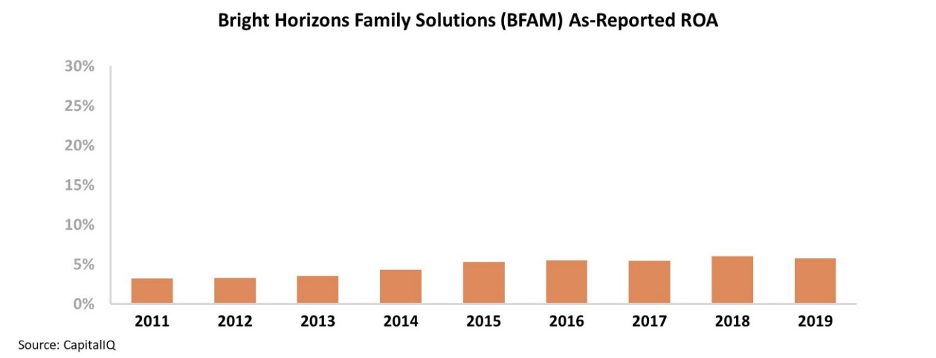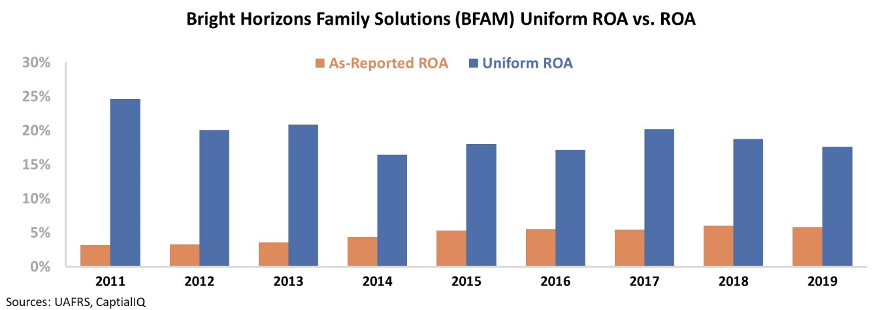 When you're born has a significant effect on your success...
When you're born has a significant effect on your success...
My public school decided when students could enter classes based on whether their birthday was before or after September 1.
I was born in late June, so I was one of the youngest students in my class. Had I been born two and a half months later, I would have missed the cutoff and been one of the oldest kids in my class.
Any child in the same situation as I was – born sometime in June through August – was in the lowest quartile of physical and emotional development relative to "peers" based on that cutoff.
I was born in a great year in terms of my future job opportunities. I was part of the birth dearth in the 1970s after the Baby Boomers. Thanks to this timing, there were fewer people to compete with once I got to adulthood. However, I wasn't born in an ideal month.
It's not just in a big-picture, "what year were you born" way that matters... When you were born during the year can be important to your long-term success. The research – conducted by several varying organizations over decades and across the globe – is conclusive.
For example, a child's birth month can create radically different levels of opportunity in sports – evident in athletes ranging from Olympians to World Cup soccer players. Look at the birth month of successful athletes. They are artificially skewed to be earlier in the year.
In youth sports, much of the world outside of the U.S. has a January 1 cutoff date. If you're born December 31, you're the youngest kid on the team.
If you're born in January, you're one of the oldest. When you first start playing that sport, you're the most physically and emotionally developed.
As a four-year-old playing youth hockey or soccer, the difference between being born on December 31 and January 1 of the same year is a quarter of a child's life and development.
Imagine pitting a 20-year-old against a 15-year-old in a sport... then permanently investing more in the 20-year-old for years afterward, because he did better in that one head-to-head match-up.
This is in essence what happens when kids born earlier in the year excel in sports or school. They get coached more and get more "reps."
On average, the older child in a classroom of younger students will excel in discussions, sports, and testing by a noticeable margin.
Teachers, coaches, and other kids don't index competencies and capabilities against birth month... So the more aged-developed children receive more attention-driven development.
They get picked to be on teams at recess more often. They get chosen for starring roles in school plays. They get added to debate teams.
However, this phenomenon isn't so strong that it can't be overcome...
This past week, I spoke about these issues on our weekly all-hands team call with Altimetry employees and contractors.
I certainly didn't speak about it to create a spirit of defeatism... and I didn't do it to help anyone self-explain why they didn't make the cut for the soccer team in 7th grade.
My coaching comment focused on what was most important. The main driver of accelerated development in children isn't so much the relative age itself... It's the year-over-year compounding of attention, training, and interest.
Throughout a child's development (and for that matter, for an employee's development), it's vital to invest in showing interest and providing training and an opportunity for simply trying.
That attention and training is what really makes the difference over the years. It just happens to begin at an early age and then generally begins a continual reinforcement over time.
It may not be very practical or effective for parents to time when their children will be born. Far more practical and realizable is a concerted effort to ensure that children get the maximum training, resources, and attention for their chosen play.
Investing in coaching, tutoring, or other ways to help level the playing field pay off. This will help a child, even born later in the year, keep up until six months or a year of development becomes less material.
In many fields, getting this type of experience is far more important than innate intelligence or abilities – or birth year or month.
 One way to improve outcomes for kids is through strong child care...
One way to improve outcomes for kids is through strong child care...
As I said, making sure children get early experiences and exposure to peers and adults is vital for development. It helps kids develop social and emotional skills... not just intelligence and physical experience.
Those with exposure to early opportunities, such as pre-school, are linked to better educational outcomes.
One company focused on helping with early childhood development is Bright Horizons Family Solutions (BFAM). It's one of the largest providers of early child care and education in the U.S.
Bright Horizons offers a range of programs for children of all ages, from infants to teenagers... But the company focuses on the pre-school age range where the most development occurs. This is often the first time kids get exposure to other children and gain crucial social experiences.
Today, Bright Horizons has more than 1,000 centers across North America and Europe, and most of the company's growth stems from "rolling up" smaller providers.
Bright Horizons' solutions help parents make sure their children don't get left behind... so investors might assume that a company providing such an important part of future success would be able to charge a premium.
However, looking at Bright Horizons' as-reported return on assets ("ROA"), the company appears to have below-average profitability. Its as-reported ROA was just 6% in 2019... barely exceeding cost-of-capital levels.
However, this picture of Bright Horizons' performance is distorted by the issues inherent in as-reported accounting, including the treatment of goodwill and operating leases. The market is completely mistaken about the strength of the company's returns.
Since 2011, Bright Horizons' real ROA has been at least three times higher than as-reported metrics indicate. Just last year, the company's Uniform ROA was 18%, not 6%.
It's clear that parents have been willing to pay a premium for this needed service. Additionally, Bright Horizons' history of scooping up smaller care facilities over the past decade has helped the company expand its brand and offerings... and this has led to above-average returns.
Without Uniform Accounting, investors would miss the strong returns of this child care provider. They might see Bright Horizons as a company with below-average returns that doesn't add enough value for its clients to charge a premium price.
However, Bright Horizons provides significant value for parents – enough that they'll pay a premium for the company's services. If Bright Horizons can continue to capitalize on trends in child care – and give parents confidence that it'll provide their kids access to the "reps" they need to succeed later in life – it should be able to maintain its market dominance.
Regards,
Joel Litman
October 23, 2020



 When you're born has a significant effect on your success...
When you're born has a significant effect on your success...



